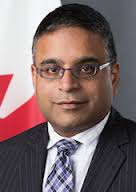By Byron Mutingwende
The participation and contribution to decision-making by women is crucial to advancing their needs and ensuring that the national HIV and AIDS response is gender responsive. Speaking at a meeting convened by UN Women at Meikles Hotel in Harare Thursday, Kumar Gupta, the Ambassador of Canada to Zimbabwe, said that ending the AIDS pandemic by 2030 requires rights and gender-based action on their social, political and economic determinants of HIV.
“A commitment to ending AIDS will serve as a catalyst for achieving a shared vision of social and economic justice including gender equality, particularly for women and girls vulnerable to HIV, key populations and the poor. Because people’s risk-taking behaviours and vulnerability to HIV is driven by poverty, exclusion and unequal gender dynamics, an effective AIDS response has demanded that these political and social determinants of HIV risk be directly confronted,” Gupta said.
The Ambassador revealed that the rights of women and girls are central to Canada’s domestic and foreign policy as it also hosted the Global fund’s Fifth Replenishment Conference in Montreal in September. A total of nearly US$13 billion was raised to fund life-saving treatments and accelerate the progress towards ending the epidemics of HIV, tuberculosis and malaria by 2030.
“Canada is currently undertaking development assistance review but the rights of women and girls will be at the heart of that process. It is refreshing that the prevalence rates of HIV have drastically decreased over the past decade in Zimbabwe due to dedicated leadership on this issue. However, despite the progress, Zimbabwe still has the 1, 4 million people living with HIV – the sixth highest in the world. 77 000 of those are children.”
It emerged that globally women are at increased risk of experiencing gender-based violence with 35% of them experiencing either intimate partner violence or non-partner sexual violence in their lifetime. Thus, the unequal treatment of women and girls is one of the main reasons they are unable to realise their basic human rights and is a contributing factor to violence against them including HIV.
According to the Zimbabwe Demographic Health Survey (ZDHS 2011), 27% of women aged 15-49 have experienced sexual violence at some point in their lives and about 22% reported that their first sexual intercourse was forced against their will.
Gupta added that it was worrisome that 40% of women and 34% of man aged 15-49 years believe that a husband is justified in beating his wife while 17% of women believe that a husband is justified for beating his wife for refusing to have sexual intercourse with him.
The Advocacy Manager of the African Young Positives (AY+) in sharing the frustrations and challenges faced by adolescents in responding to HIV bemoaned the inequitable access to service like sexual reproductive health and rights.
“Adolescents are tired of the tokenism approach to adolescents in participation in HIV response programmes. We need meaningful representation in the design, implementation and monitoring of HIV policies. We are calling for establishment of youth led initiatives that respond to HIV among the adolescents,” Sango-Page said.
A woman living with HIV, Martha Tholana, said that there was the need to review and reform policies and guidelines on violence them and offer them accessible and affordable counselling on HIV.
“The HIV response should go beyond disclosure of our positive status because being an HIV positive women does not take away libido. We also face mental health conditions, which include depression and anxiety. It is also important to talk positively about sex at health centres,” Tholana said.
The award-winning HIV positive change-maker reiterated the importance of promoting gender-sensitive and affirmative literacy programmes like removing the negative stereotypes on the use of female condoms.
Talent Jumo, a member of the Country Coordinating Mechanism on HIV response said that despite a funding of over $600 million under the Global Fund, some women organisations were on the brink of collapse due to a lack of funding yet there remains about $25 million in unspent funds.
“There is a need to engage in robust consultative processes about the needs of women organisations in HIV care. Some women might be raped in such areas like Chipinge, Matedzi and Jerezi where there are no clinics yet they need pre and post exposure prophylaxis,” Jumo said.
Jumo called for an investment in social safety nets whereby commercial sex work would be decriminalised. This should be coupled with providing comprehensive sexuality education and scaling up the publicity on female controlled technologies to fight new HIV infections.
The Chairperson of the Women’s Coalition and Director of Zimbabwe Women’s Resource Centre and Network, Pamela Mhlanga, said that the financing response to HIV should be friendly to women. She said that it was of paramount importance to set up a structural way of ensuring that women’s financial needs are met in addressing the epidemic.






